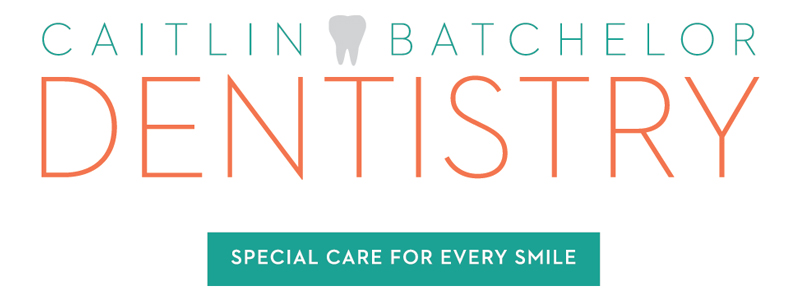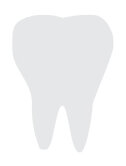Harrisonburg Dental Gum Recession
Dental gum recession affects half the population. Learn its causes and treatments.
What is gum recession?
Gum recession happens for a few reasons. One is gum disease - bacteria in the mouth cause the gums to start to pull away from the tooth’s surface, exposing the tooth root, creating pockets for bacteria to thrive in. A common culprit of receding gums is plaque or tartar build-up that is occurring below the gumline. As more plaque cakes onto the tooth’s surface below the gums, more bacteria gets into the pockets and infection can easily occur. Other reasons include heavy-handed tooth brushing, or uneven biting forces on teeth.
Are you experiencing gum recession?
In many cases, gum recession is slow and gradual and doesn’t come along with a lot of pain or discomfort, particularly during the beginning stages. Patients often don’t notice the signs until dental problems have compounded because of their receding gums. While a professional dental evaluation and diagnosis is the only way to know for sure if your gums are receding, it’s important to keep your eyes peeled for both the slight and severe symptoms.
Some of the most common symptoms of dental gum recession include:
| Sensitivity with toothbrushing | Swollen or red gums |
| Gums that bleed after flossing or brushing | Gums that are visibly shrinking |
| Pain or tenderness at the gum line | A notch felt on the tooth near the gum line |
| Sensitive teeth |
What causes gum recession?
The most common cause of dental gum recession is periodontal disease, which is a severe infection in the gums. Periodontal disease is caused most often by poor dental hygiene practices, but some patients are more prone to the condition due to genetics.
Other causes of gum recession include:
Tobacco use
Chronic illnesses like diabetes or HIV
Hormonal changes in women due to pregnancy or menopause
Regularly brushing teeth too hard
Grinding or clenching teeth
Harrisonburg gum recession treatment
Treatments for gum recession vary, and are selected by a gum recession dentist based on the severity of each patient’s condition. For mild cases of gum recession, the issue may be monitored and sensitivity addressed with a variety of products. For recession related to gm disease, it can be corrected by a dental deep cleaning session. For more severe cases, surgery may be required.
Dental deep cleaning for mild gum recession
A deep cleaning is often referred to as scaling and root planing, and it’s an effective treatment to control mild periodontal disease that’s causing gums to recede. The goal of the treatment is to remove plaque and tartar that has built up below the gumline and close up pockets that are collecting bacteria. A local anesthetic is used to numb the affected area and a scaling tool is used to scrape away plaque below the gumline.
Surgical options for more severe dental gum recession
Depending on the cause of the gum recession, a variety of surgical options exist.
If gum disease is the culprit, periodontal flap procedures are similar to deep cleanings, but they are used to remove plaque even deeper under the gums where deep cleaning can’t access it. An incision is made in the gums to expose more of the teeth so that deep-down plaque is cleared and infection can be treated.
In cases where recession is from other causes, tissue grafting procedures with biologic or synthetic materials are effective to cover exposed tooth roots and regenerate lost gum tissue.
Don’t hesitate to reach out. Call us at (540) 432-9992 to get more information about Harrisonburg gum recession treatments.
How can I prevent gum recession in the future?
Brush and floss daily
If you brush hard, try lightening up
Use a soft-bristled toothbrush
Schedule regular dental cleanings
Avoid tobacco products if you use them
Eat a balanced diet and nutritious foods
FAQs about dental gum recession
Why is gum recession treatment necessary?
Since the beginning stages of gum recession are often un-noticeable and present with no pain or discomfort, it’s easy to neglect the condition. However, if gum disease is left untreated, bacteria will continue to thrive, infection will set in, and gums will continue to recede. Some cases of dental gum recession lead to tooth decay and even the complete loss of teeth. It’s crucial to get gum recession diagnosed and treated by a professional as soon as possible.
What should I expect after a gum recession treatment?
Depending on the treatment selected by a gum recession dentist, the level of discomfort and downtime after the treatment can vary.
A dental deep cleaning, for example, can cause mild inflammation, tenderness, sensitivity, and bleeding for just a few days after treatment. You can typically carry on with your normal routine with just a few slight changes in eating habits as your gums heal.
When it comes to gum surgeries for more severe cases of dental gum recession, the healing and after-care plan can span up to several weeks. Certain types of food are restricted and your brushing and flossing routine is interrupted so that the gums can heal. Specific instructions for at-home care are typically given to prevent infection and help the healing process along.
Contact us to get your dental gum recession diagnosed and we can refer you to a specialist.
What Patients Say
“Dr. Batchelor and her team are fantastic! They provide the highest quality professional service with gentleness and care. My initial visit to their Harrisonburg dental practice was extremely thorough...They accommodate my challenging schedule and work with my insurance company...I am thrilled with the service and give them the highest recommendation!!”
Our Harrisonburg Toothache Dentist
1920 Medical Ave Ste J
Harrisonburg, VA 22801
Get directions
Phone: (540) 432-9992
Hours: Monday-Thursday 8am - 5pm



